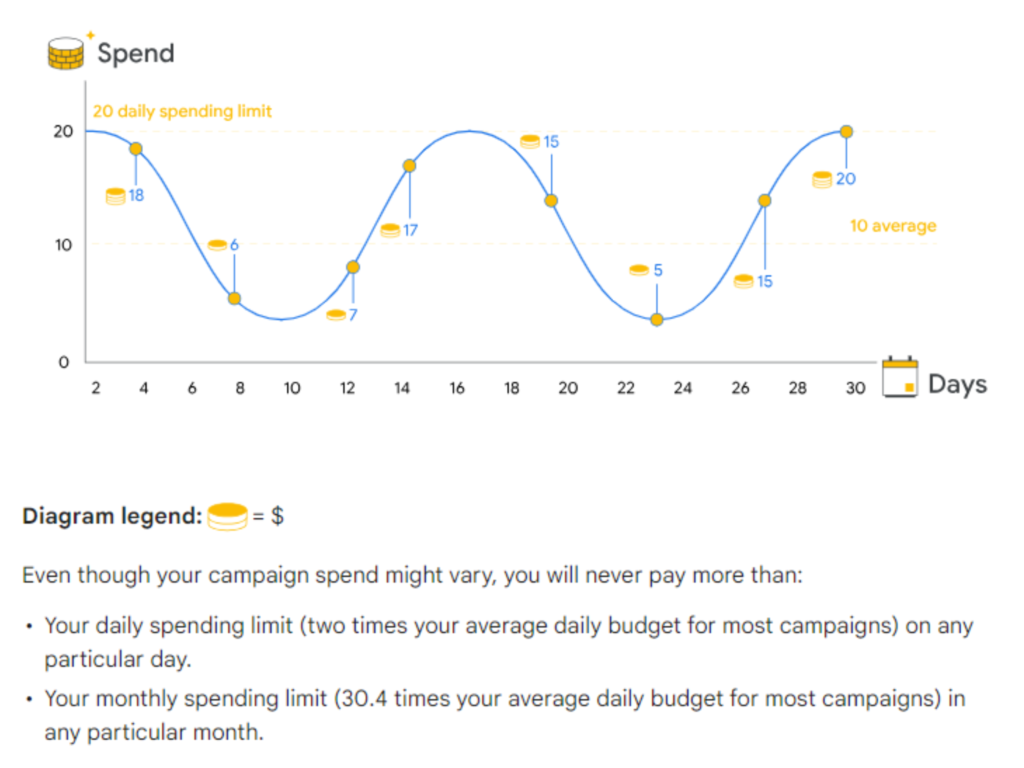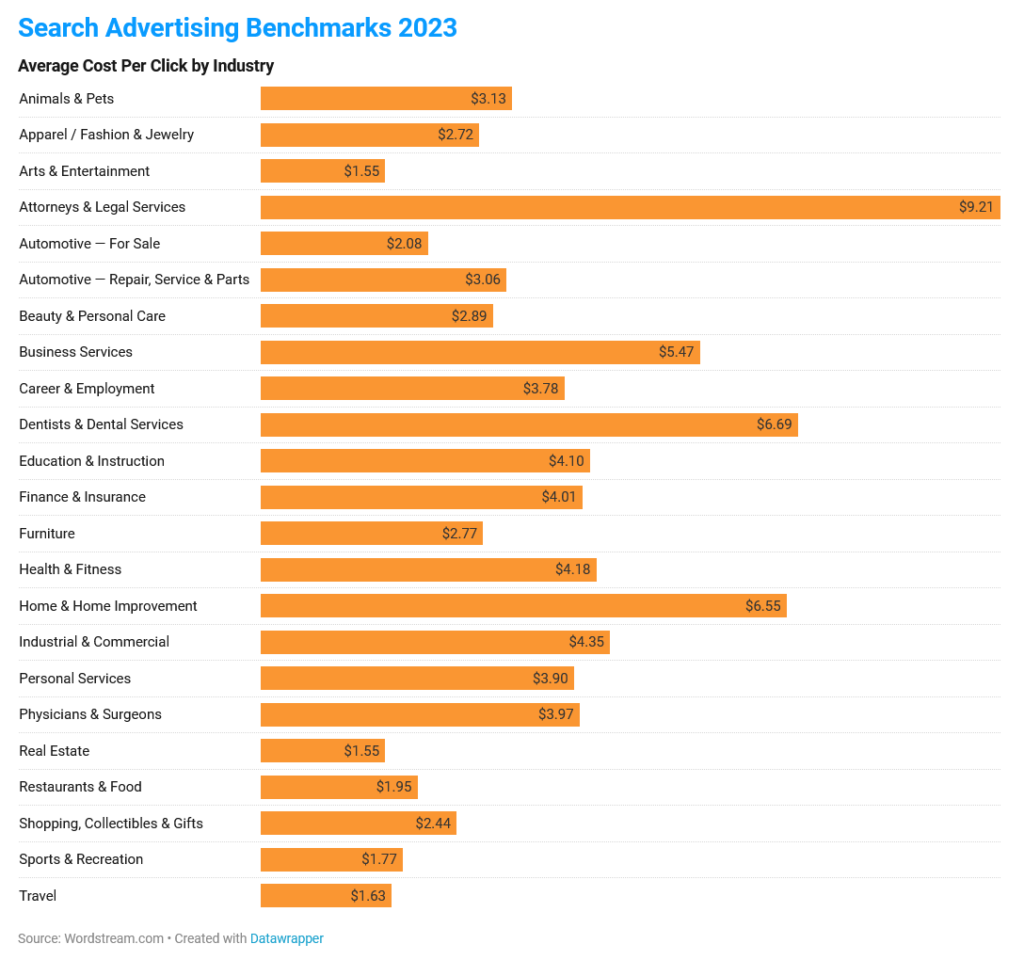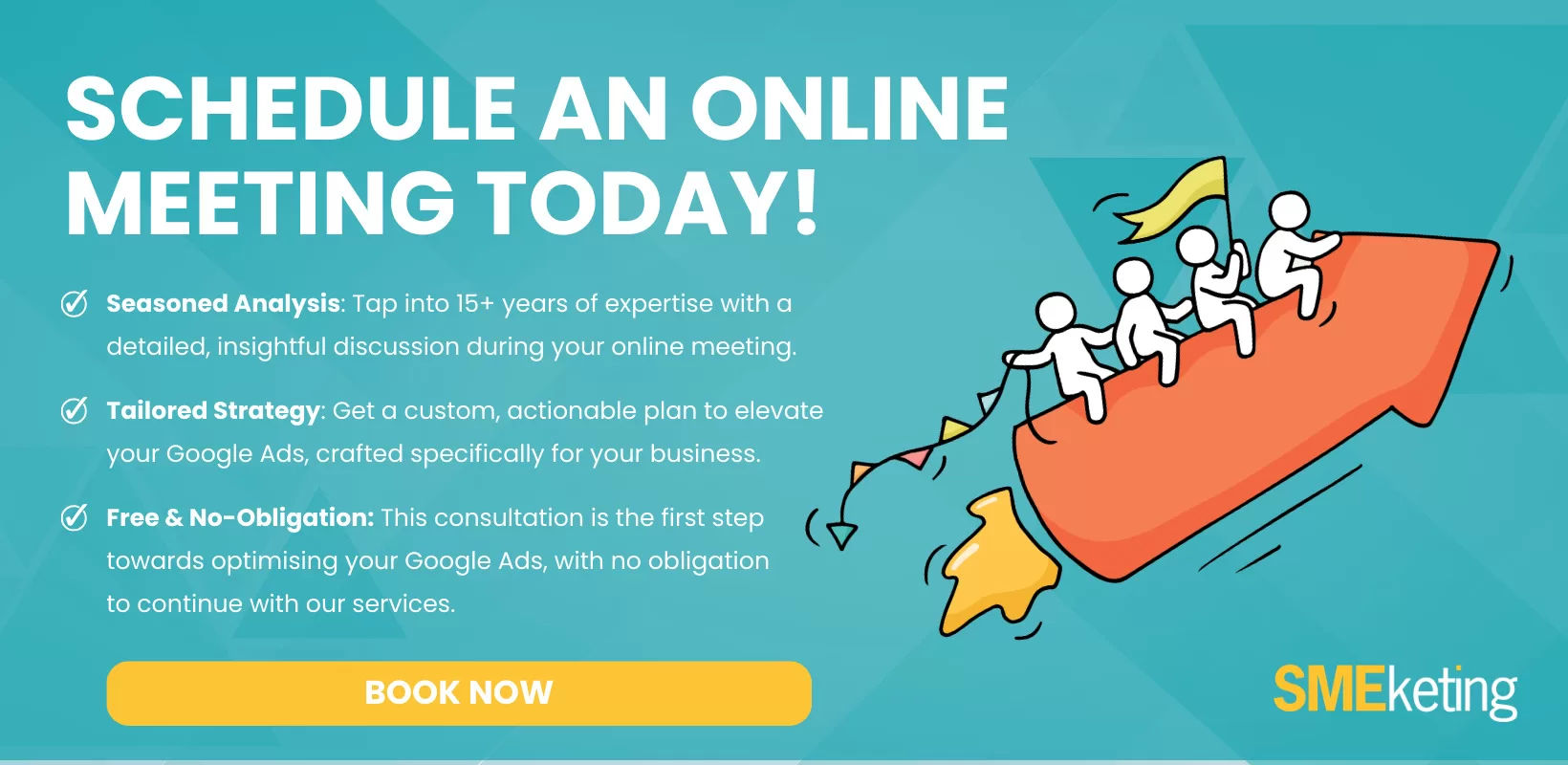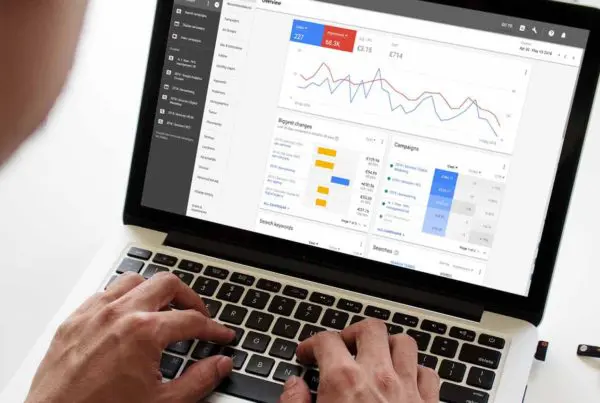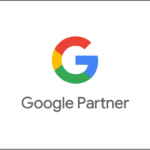Understanding the cost of Google Ads is crucial for any business aiming for growth, especially those focused on lead generation.
This guide offers an in-depth look into Google Ads costs, with a special focus on Search and Display Ads—the bread and butter of lead-gen businesses.
Why Understanding Google Ads Costs Matters:
Before you dive into the world of Google Ads, it’s essential to grasp how costs can impact your return on investment (ROI). A well-managed budget in Google Ads can significantly increase your chances of attracting high-quality leads.
Understanding the costs also allows you to strategise better, ensuring you don’t waste precious pounds on ineffective campaigns.
Factors Influencing Google Ads Costs:
When pondering, “How much do Google Ads cost?”, it’s important to consider several factors that can impact your overall spend. Here are some of the key elements:
- Keyword Popularity: The more sought-after a keyword is, the higher the cost.
- Competition: In high-demand industries, you’ll find yourself in a bidding war, raising the cost of Google Ads.
- Ad Quality: Google rewards well-crafted ads with lower costs and better placement.
- Geographic Location: Where your audience is located can significantly affect how much Google Ads cost.
- Industry: Your business sector plays a role. Some industries have much higher average costs per click.
- Account Management Quality: A well-managed Google Ads account can result in lower costs and better-quality leads, especially when focused on Search and Display Ads.
Understanding these variables helps to demystify what the cost of Google Ads will be for your lead-gen business.
Types of Google Ads and Their Costs:
When you’re trying to figure out “how much do Google Ads cost?”, the type of ad campaign you choose plays a massive role. Here’s a more detailed look at the two main campaign types for lead-gen businesses:
Search Ads:
- Why They Matter: Search Ads appear when someone actively looks for the services or products you offer. This means the person is likely already interested and might be ready to convert, making these ads incredibly valuable for lead generation.
- Cost Factor: These can be on the pricier side but remember, you’re paying for higher intent, which often means better quality leads.
- Best Use: Ideal for capturing hot leads who are actively searching for your services. The keyword strategy needs to be spot-on to maximise ROI.
Display Ads:
- Why They Matter: Display Ads are great for brand awareness. They appear on websites your potential leads visit and serve as a gentle nudge, reminding them of your services.
- Cost Factor: Generally less expensive than Search Ads. While the intent might not be as high, the reach is broader.
- Best Use: Perfect for retargeting campaigns. If someone’s visited your site but didn’t convert, Display Ads remind them why they should reconsider.
For lead-gen businesses, mixing both Search and Display Ads can offer a balanced approach to generating high-quality leads while optimising how much Google Ads cost.
The Bidding Process: How It Affects Costs:
If you’ve ever wondered “how is the cost of Google Ads determined?”, the answer largely lies in the bidding process. Here’s a breakdown:
- Quality Score: This is Google’s rating of the quality and relevance of your keywords and ads. A higher Quality Score can lead to lower costs and better ad positions.
- Ad Rank: This is calculated during each auction and determines your ad position. It’s a combination of your bid amount and Quality Score.
- Cost-Per-Click (CPC): This is the actual amount you pay for each click. Your CPC is influenced by the Quality Score and the Ad Rank you secure in the auction.
Additional Variables:
- Landing Page Relevance and Experience: Google also considers how relevant and user-friendly your landing page is. A better experience can lower your CPC.
- Device: Costs can vary depending on whether users are on desktop, mobile, or tablet.
- Location: Geographic location impacts cost, as does auction-time quality based on real-time competition in that area.
Understanding these elements provides a clearer picture of how much Google Ads cost and allows you to better manage your spending on Search and Display Ads.
Bids, Budgets, Spending and CPCs
Understanding the elements that makeup spending in Google Ads is crucial:
- Your budget is the overall amount you’re willing to spend on a specific campaign
- Your bid is what you’re willing to pay for a single click
- The term ‘spend‘ refers to the actual amount that gets deducted from your budget as people click on your ads
- Cost, on the other hand, is often spoken about in terms of average Cost-Per-Click (CPC).
When it comes to daily spending, you’ll need to set an average daily budget. This is essentially your monthly budget divided by the number of days in the month. Google may go over your daily budget on some days, but it won’t exceed your monthly limit.
You can learn more about the details of budgeting in this article: Cracking The Google Ads Budgeting Code
Here’s how you can determine your daily budget:
- Look at your overall Google Ads budget.
- Examine the average CPC of your chosen keywords.
- Think about how important this particular campaign is compared to others in your account.
For those who prefer the control of a manual CPC bidding strategy, you have additional tools at your disposal. You can set up dayparting to schedule your ads for the most effective times of day. Device bidding allows you to adjust your bids based on whether your potential leads are using a mobile, tablet or desktop. Finally, with location bid adjustments, you can increase or decrease your bids for specific geographic areas, depending on their performance.
By having a comprehensive budgeting strategy, you can effectively manage how much Google Ads costs and boost your ROI, particularly when running Search and Display Ads campaigns.
Average CPCs in Google Ads:
When it comes to the “how much does Google cost,” question, one of the most direct indicators is the average cost-per-click (CPC). In the US (annoying most of the accurate research is US based, but imagine similar costs in the UK), across various industries and keywords, the overall average CPC on the Search Network is between $1 and $2. On the Google Display Network, it’s typically less expensive, averaging under $1 per click.
However, these are averages. In our experience at SMEketing, you’ll be lucky to get clicks under £1. Think £1-£2 as an absolute minimum.
Industry-Specific Costs:
It’s worth noting that costs can vary significantly depending on the industry. For instance:
- Insurance can run you as high as $54.91 per click.
- In the loans sector, you’re looking at around $44.28.
- Legal sectors can cost around $47.
Monthly Budget Recommendations
For small businesses, we generally recommend a budget of £500-2000 a month. Medium-sized businesses often spend around £10,000 to £30,000 a month.
These figures can give you a decent gauge of what to expect in terms of Google Ads costs.
And don’t forget, there’s also the cost of agency fees to consider.
At SMEketing, our fees start at £1,000 a month with a recommended click budget of £2,000 as a minimum for most clients.
Knowing these average costs can give you a clearer picture of your potential Google Ads expenses, helping you budget more effectively for Search and Display campaigns.
Summary and Key Takeaways:
Understanding the cost of Google Ads can feel like navigating a maze, but once you get the hang of it, it’s straightforward. The type of campaign you choose, be it Search or Display Ads, plays a significant role in your expenses. While Search Ads capture high-intent users and can be pricier, Display Ads offer a cost-effective way to broaden your reach and are excellent for retargeting.
Your bidding strategy also impacts the cost, and familiarising yourself with terms like Quality Score, Ad Rank, and CPC will help you make more informed decisions. Budgeting is an art and a science; knowing the daily average and monthly caps ensures you get the most bang for your buck.
Key Takeaways:
- Choose the right type of campaign for your lead-gen business. Search Ads are more expensive but usually result in higher quality leads.
- Understand the bidding process to influence your ad’s position and cost effectively.
- Proper budgeting can help you maximise ROI, especially if you’re using manual CPC and applying strategies like day parting and device bidding.
- The industry you’re in significantly impacts your average CPC. Budget accordingly.
Don’t forget agency fees when budgeting. At SMEketing, we aim to give you full transparency and work closely with you to ensure your Google Ads campaigns are a resounding success.
Get Your Google Ads Settings Right with the Help of an Experienced Google Ads Agency
Are you worried about quality of your Google Ad campaigns? Is your current Google Ads agency not supporting you in this area?
As a Google Ads agency in Southampton, we are positioned perfectly to help business owners, MDs and sales/marketing managers with their Google Ads. Get started today with our free Google Ads Growth Review!
- How to Do Keyword Research for Google Ads - January 15, 2024
- A Comprehensive Guide to Google Ads for B2C Businesses - January 8, 2024
- How to Write Calls to Action (CTAs) for Google Ads - December 25, 2023


